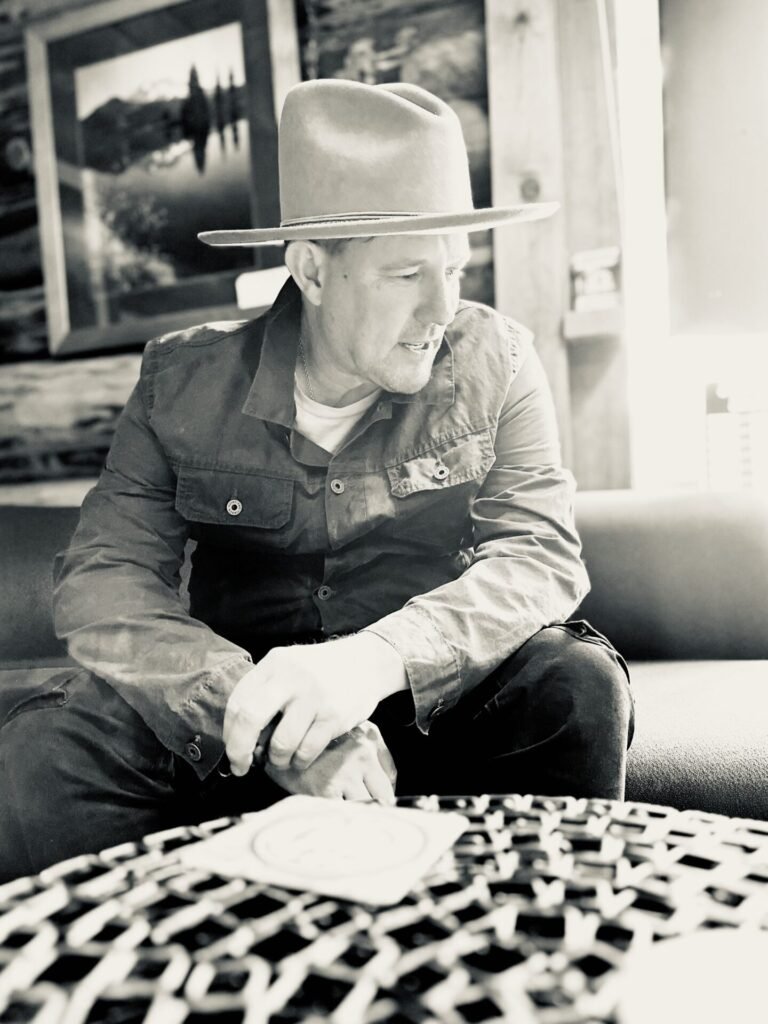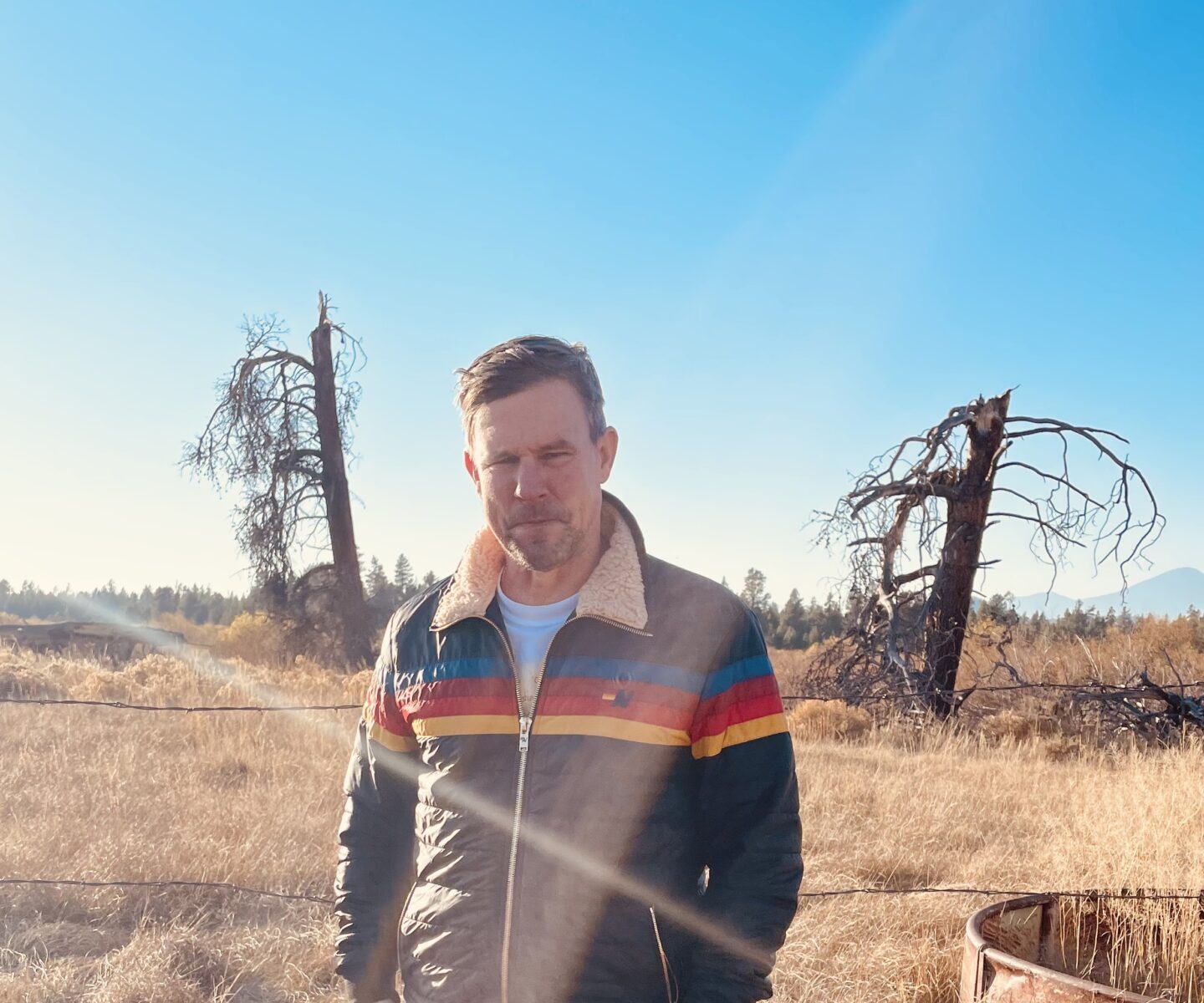The new single “Road of Bones” from Portland, Oregon, singer-songwriter Shawn Brown is scheduled for release on June 2nd. By incorporating more of a pop sensibility and writing one of his catchiest songs to date, Brown has improved upon his distinct folk/songwriter sound. “Road of Bones” evokes the 90s rock and folk/country sound, which is not only timeless but has recently experienced a revival among listeners of all ages. Check out the exclusive interview below:

1. Can you tell us a bit about where you come from and how it all got started?
SHAWN BROWN: Great to be with you. Well, I was born in Seattle and hit middle school in the late 80’s so you can easily imagine the music that was swirling around us locally in those days. I was one of those little club kids sneaking into gigs and having my mind-blown by all the bands. Soundgarden, AIC, Screaming Trees, all of it. I know for a fact all those early shows jump-started me into my first bands. That said, my singing voice didn’t sound like those folks so I went digging and connected with soul and country artists and slowly figured out my lane. My first EP came out in 2000 and off it goes.
2. Did you have any formal training or are you self-taught?
SHAWN BROWN: I’m completely self-taught, which has its pros and cons for sure. I think from a pure songwriting and melody perspective, not having any parameters has likely helped a lot. That said, there are plenty of times when I’m collaborating with amazing musicians and I have to get pretty creative in how I pass along what I’m hearing in my head because I can’t fall back on music theory to communicate itl. Those are some hilarious sessions!
3. Who were your first and strongest musical influences and why the name ‘SHAWN BROWN’?
SHAWN BROWN: If I really think back, my musical palette was shaped by artists like John Mellencamp, Tracey Chapman, Bill Withers, Counting Crows – folks like that. There’s a sort of a Heartland Rock thing that has been a real throughline my whole career. Those acoustic elements are really important to me, so whatever story I can tell along with those sounds suits me just fine.
4. What do you feel are the key elements in your music that should resonate with listeners, and how would you personally describe your sound?
SHAWN BROWN: I like the storytelling aspects of songwriting the most. The challenge is always to ride that balance between the specificity and honesty of the lyric while simultaneously connecting with listeners around melody. It’s tricky. I hope listeners can connect on multiple levels. That’s the goal for sure.

5. Do you feel that your music is giving you back just as much fulfillment as the amount of work you are putting into it or are you expecting something more, or different in the future?
SHAWN BROWN: That’s a hard one to answer actually. For me, the challenge is to be present as much with it all as I can. Like playing a show for instance, if I’m thinking about the next song or the chord changes coming up, I’m not getting near as much out of the experience as I do if I’m just “in it”. For me anyway, that’s where fulfillment lives – just being with whatever is happening in the moment. Songwriting is similar to.
6. What’s your view on the role and function of music as political, cultural, spiritual, and/or social vehicles – and do you try and affront any of these themes in your work, or are you purely interested in music as an expression of technical artistry, personal narrative, and entertainment?
SHAWN BROWN: I love that question. On a grand scale, my own bias trends toward art being a reflection of the time in which it’s created. Sometimes that’s not a pleasant job. If you are being an honest and authentic artist, there’s a lot to talk about these days and staying away from it all in favor of merely wanting to entertain isn’t cutting it. Connection through a shared feeling or experience is really all I’m actually interested in so if that happens on any level, I’m happy.
7. Could you describe your creative processes? How do usually start, and go about shaping ideas into a completed song? Do you usually start with a tune, a beat, or a narrative in your head? And do you collaborate with others in this process?
SHAWN BROWN: Funny enough, I tend to write in parallel. I keep a running list of lyrical ideas and develop the ones that resonate with me the most. On the other hand, I’m always messing around with melodies. At some point I’ll put them together and see if anything fits.
8. For most artists, originality is first preceded by a phase of learning and, often, emulating others. What was this like for you? How would you describe your own development as an artist and music maker, and the transition towards your own style, which is known as COUNTRY?
SHAWN BROWN: Agreed. I’d argue there are definitely some exceptions out there in the Jeff Buckleys and Princes of the world, but yeah – for most of us there is an emulation that kicks things off. For me, genre and musical styles aren’t concepts that I’ve ever taken very seriously. I know it’s driven a few A&R reps crazy over the years because I just have never been able to settle into one defined lane. The music I have been making recently probably fits most closely with Country and Americana, but who knows?
9. What has been the most difficult thing you’ve had to endure in your life or music career so far?
SHAWN BROWN: There were a lot of hard lessons and heartbreak early on in my career. While those lessons are super important and formative, they still hurt. Getting signed and dropped is no fun whatsoever.
10. Do you think is it important for fans of your music to understand the real story and message driving each of your songs, or do you think everyone should be free to interpret your songs in their own personal way?
SHAWN BROWN: I don’t at all think it’s important for folks to understand the original intent. As a rabid music consumer myself, the real story is rarely as satisfying as the mystery of not quite being able to figure it out. As a writer, the real story isn’t terribly enthralling anyway. Not sure anyone needs to know that I was mowing the lawn or whatever, trust me – your story about the song is far better.
KEEP IN TOUCH:
FACEBOOK | INSTAGRAM | SPOTIFY | WEBSITE

